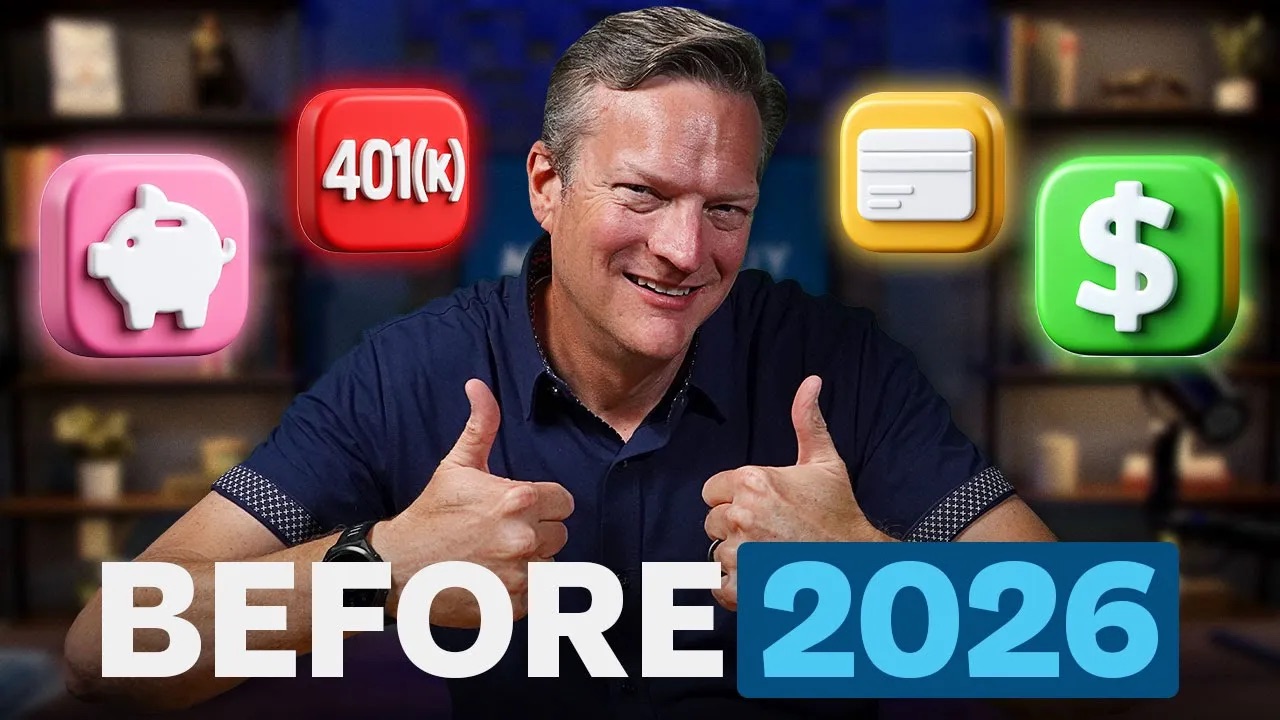Yeah, we’ve got a great question to start us off from Ramona. It says, “Almost every financial person I listen to says that buying a home is one of the best ways to build wealth. But for me, at least right now, renting is so much cheaper. Wouldn’t it be better to just rent and invest the difference?” This is kind of a common thread in questions that we’re seeing in this current climate. So, what do you guys have to say?
Yeah, I think this one’s really interesting, and there, in my view, there is one word that this question hinges on. The word was, “Wouldn’t it be better to just rent and invest the difference?” And I think the answer to your question, Ramona, depends on how you define the word “better.” It depends on what outcome you’re looking for because I think we’ve lived in this world where it has been drilled into us that homeownership is a must. It’s the only way to… you have to own a home, you have to own a home, you have to own a home. And while there are amazing and wonderful benefits to homeownership, if owning a home is not part of the goals that you have or the desires that you have or doesn’t make sense for your unique situation, it may, in fact, not be the best decision for you, especially in an environment where home prices have skyrocketed and interest rates are super high.
So, I think a lot of young people, especially, they feel this pressure – “I have to buy a home, I have to buy a home, I have to buy a home.” I don’t know that that’s an appropriate and accurate pressure that everyone necessarily ought to feel. Look, I want everybody to know, and we’re about to do a net worth by age show that will confirm this, unfortunately, most Americans’ net worth is tied into their homeownership, their home ownership, I should say, the equity in their house. So homeownership is good, especially historically. However, we are in a moment where underlying value is somewhat disconnected from the timing, the ebb and flow of what things are worth. Value is disconnected from price in the current market.
And let me give you some stats to set the table on this. In 47 out of the 50 largest U.S. metros, the average cost of buying a starter home, which is less than two bedrooms, is $2,959 per month. So, $3,000 a month on average for a starter home. That’s a lot. I know that when I bought my first house, my mortgage was not $3,000 a month. It gets even… But take this context, that is 64% higher than the cost of renting in those 47 out of the 50 largest metro communities. And then if you look at how that compares to the previous year, that’s 36% more expensive than it was even a year earlier. So, this is a problem. I love homeownership, but timing does matter. And if value is disconnected from what you’re receiving from renting, then I think the question being asked actually has some merit to it.
And I think, Brian, tell me if you agree with this. I think when it comes to homeownership, specifically talking about your primary residence, my opinion, it’s not always purely a financial decision. A lot of times, we make the decision around primary homeownership based on other circumstances – where do I want to live, how do I want to raise my family, what kind of family do I want to have, what do I need to be able to do those sorts of things. And it’s less about am I buying the absolute best house at the best price at the perfect best time. But even inside of that construct, you can still make wise decisions when it comes to buying a home. Or you can feel justified saying, “Hey, maybe homeownership is not for me,” or “Maybe in this season and station of my life right now, I don’t think that I have to go out and buy a home right now, today.”
Well, I think, look, I want to make sure we’re very clear on this. A lot of times, because I don’t want people to get confused in the fact that because we talk about don’t try to time the stock market and timing financial markets can be tough, especially if you look at like the S&P 500, the majority of time markets, when they get crushed, they have what’s called V-shaped recoveries, meaning that you’ll hit the bottom and then this thing will spring up. And pretty much the energy is directly impacted by the rubber band effect of how fast it goes down is also impacts how fast it goes up. Well, the problem with real estate is that there are more cycles where it’s called a U-shaped recovery, meaning that you can see where things will kind of level out even in a bottom for a while. And that does allow you to think more long-term.
And this is – let me give you some old man advice here. I have found there are moments in my life where I’ve been at a friend’s parent’s place or I’ve been out on vacation, and you’re like, “Man, I feel like I’m never going to be able to afford this.” And then you find out, you know, fast forward and we go through another economic cycle, and then all of a sudden, there’s a window where things become affordable. And you remember that feeling of helplessness that you had. So, this is how this all comes together. Just like Bo said, homeownership can go beyond your net worth statement, and it can be more of what you need as a good-use asset to raise your family. But that doesn’t mean you shouldn’t pay attention to what the value and cost of things are right now. But I would encourage you to start having the field vision to think about where do I want to be 5 years from now? Where do I want to be 10 years from now? What does that life look like?
So that when I see the area I want to live in, when I see the type of house I want to live in, I make note and start doing the homework to figure out, “This is the plan, this is the dream. Now, how do I get the nuts and bolts of the analytics to line up to where I do it?” And what I have found is… I’ve had this happen to me multiple times. You will be able to spot – because we’ll give you the tools, we’ll give you even the website to go check it out to go figure out how this pertains to your personal financial life. But you’ve got to do the preparation. That’s what luck is. Luck is at the intersection of opportunity and then value and all the other variables that come into it, hitting at the perfect time. But what if, because you’ve been through this too, we’ve done it with commercial real estate, we’ve done it with residential – what can somebody who figures out, “Yes, I want to buy a house because this is a more lifestyle decision that will be good for raising a family, setting roots in this community, so I’m not so transient.” How does somebody do that?
Yeah, we actually have a resource you can go check out. Go to moneyguy.com. I think that’s okay. I don’t think you have to necessarily feel that bad about that because you would rather wait on making such a huge life decision than rush into it and make a giant life decision in a very poor manner.
And look, if your goal is to own a house in that community in the next 3 to 5 years, start making the actions – rent but save the difference. And then that way, when all of a sudden we have some type of adjustment in the marketplace, interest rates go down, or some opportunity presents itself, or you get a big promotion and your cash flow – you’re in a completely different financial situation – doesn’t always have to be waiting for the market to crash. It might be your situation improves. You will be ready to capture the moment. And then everybody will go, “Man, how are you so good at choosing?” It’s because I did my homework. If you guys can understand the discipline that goes into deferred gratification is also the discipline that goes into beginning with the end in mind. So that you know all the variables that go into making big life decisions and navigating them well. Love it. For more information, check out our free resources.














